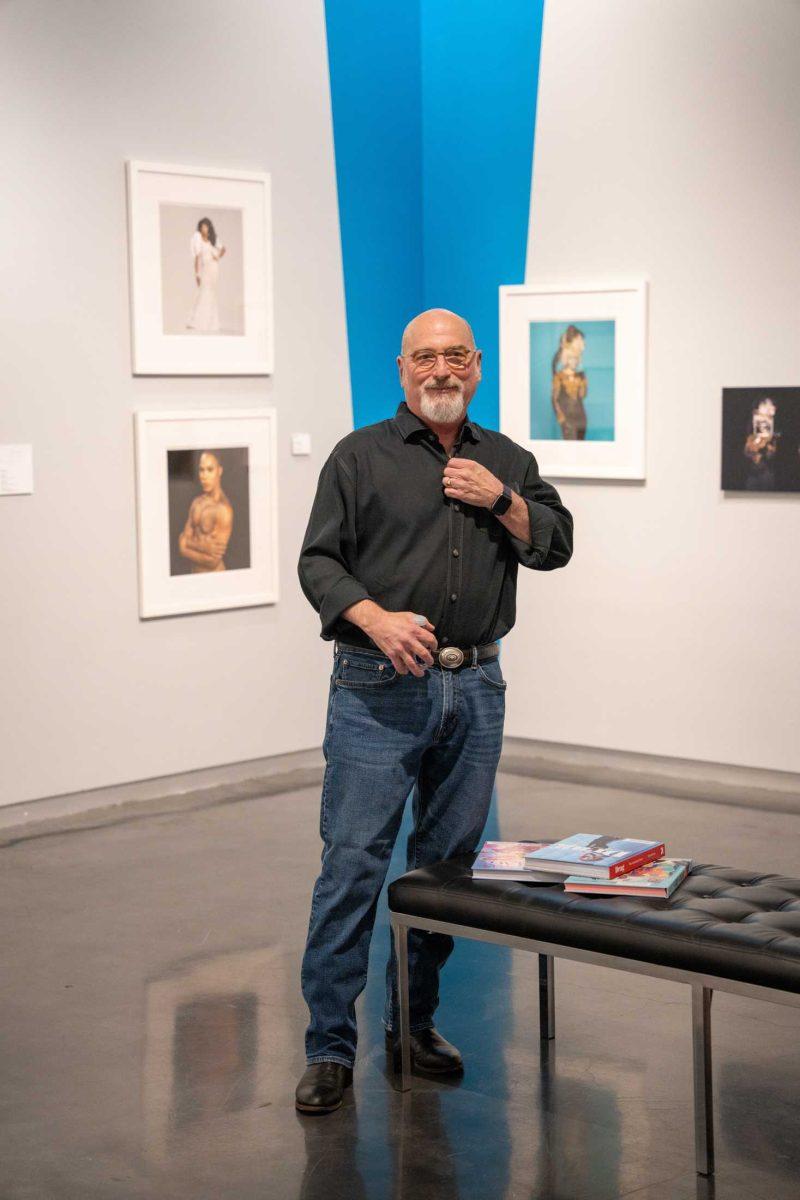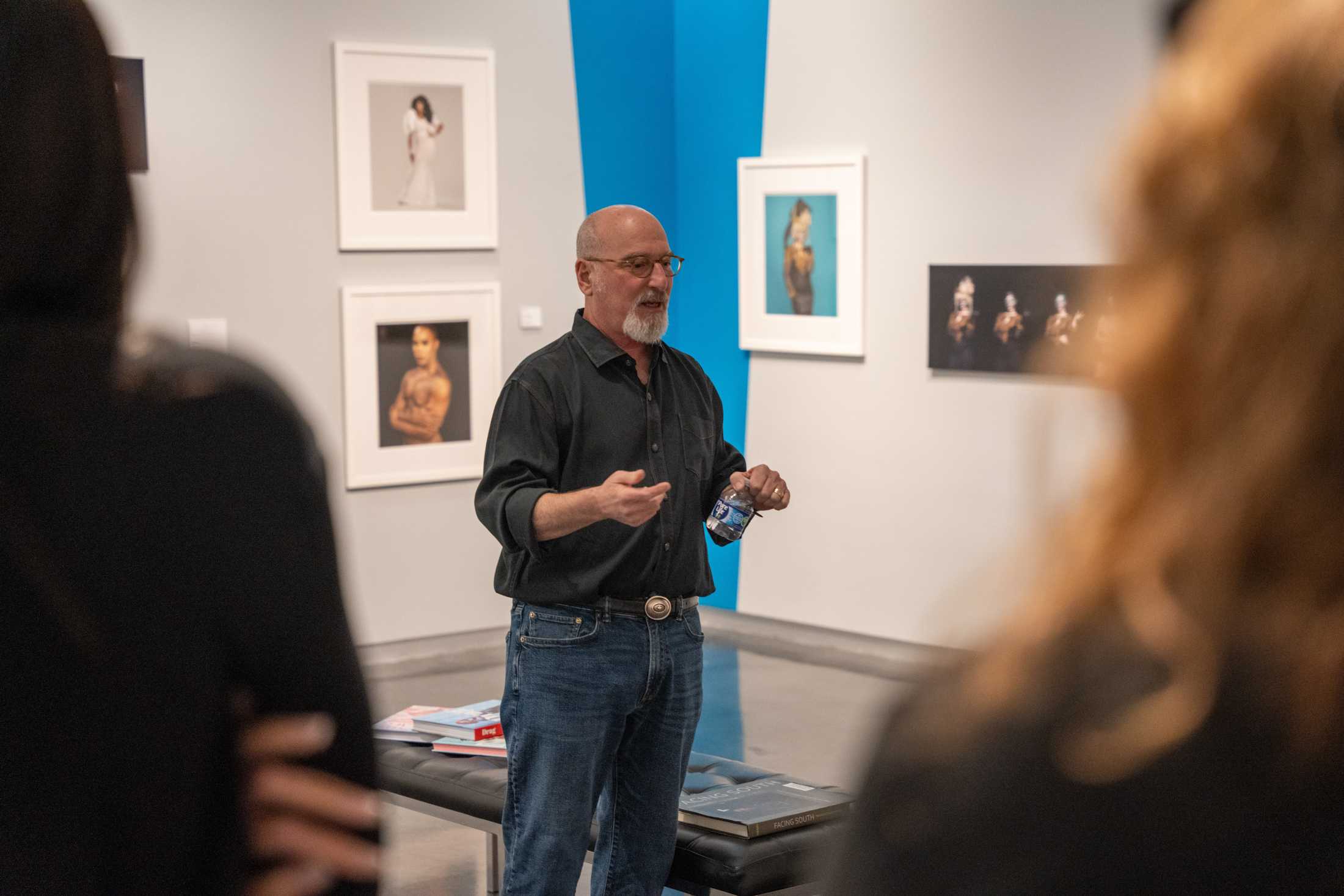The LSU Museum of Art has a new exhibition centered on the beauty of drag and drag queens.
On Aug. 31, award-winning photographer Jerry Siegel kicked off the show with a gallery talk on his new work, an exploration of queerness entitled “Reveal.”
At the talk, Siegel wore a black button down tucked into jeans, a white goatee and a warm smile. He gestured with his hands as he spoke, drawing ideas in the air.
“My interest in drag artists and the transformation they make as performance artists goes back to the late 90s,” said Siegel, discussing his inspiration for the show, “I have always been interested in how we all use costumes of a sort and how drag artists take that a step further outside their daily routine.”
When beginning his work, Siegel got to know the performers before taking any photos. “I have benefited from the interactions and conversations with all the drag artists. I would ask very pointed and direct questions because it was important to me to better understand their point of view,” Siegel said.
Siegel also commented on his gratitude to the drag artists who collaborated with him for the project.
“I appreciated that they were open to having those conversations with me, a straight cisgender male,” he said.
With “Reveal,” Siegel said that he “wanted to make work that would be interesting visually to the viewer, but would also make you think and help create dialogue about gender identity and expression.”
Siegel’s work comes at a time when there’s heavy discourse centered around queer expressions of art (like drag), gender expression and what it means to be transgender in America.
In recent years, 20 states have created laws banning gender-affirming care. This June, Louisiana joined them, passing a bill to ban gender-affirming care specifically for minors, which will take effect in January 2024.
South Dakota and Kansas have passed laws restricting which bathrooms transgender students can use in schools, and a new Florida statute prohibits transgender people from using government-owned public restrooms if the gender on the door does not match the gender assigned to them at birth.
Many of the same states are also attempting to ban drag shows. Arkansas, Texas and others have passed varied anti-drag legislation. In March, Tennessee became the first state to ban drag performances in public places. The bill, which would have taken effect on April 1, was blocked by a federal judge and ruled an “unconstitutional restriction on the freedom of speech.”
In response to the new laws, Siegel said he was, “concerned, disappointed [and] mad. Legislators are not doing their job of working for their constituents. They are playing to the lowest common denominator of their base and using fear to gain and retain power. It is not at all about what is right, what the majority is interested in or wants. I am very concerned about freedom of expression. Many in power are arguing for freedom of thought and expression, but only as it pertains to them and their beliefs.”
For Siegel, “freedom of speech and expression, making art, should be free from control. We should all be allowed to use our voices to speak about what we believe and to voice our support for whatever is important to us individually. Freedom of expression should be given to all equally.”
Siegel has been acclaimed as a photographer for excelling in bringing out the extraordinary qualities of anyone he works with, and he continued that ethos in “Reveal,” Siegel took the culture and beauty of drag and displayed the art, with all of its humanity. He presented the glamor of drag and the craftsmanship behind it.
“Reveal” will be on display at the LSU Museum of Art until Nov. 12. General admission is $5, but university students with a valid school ID, veterans, their families, and children 12 and under can visit the museum for free.






